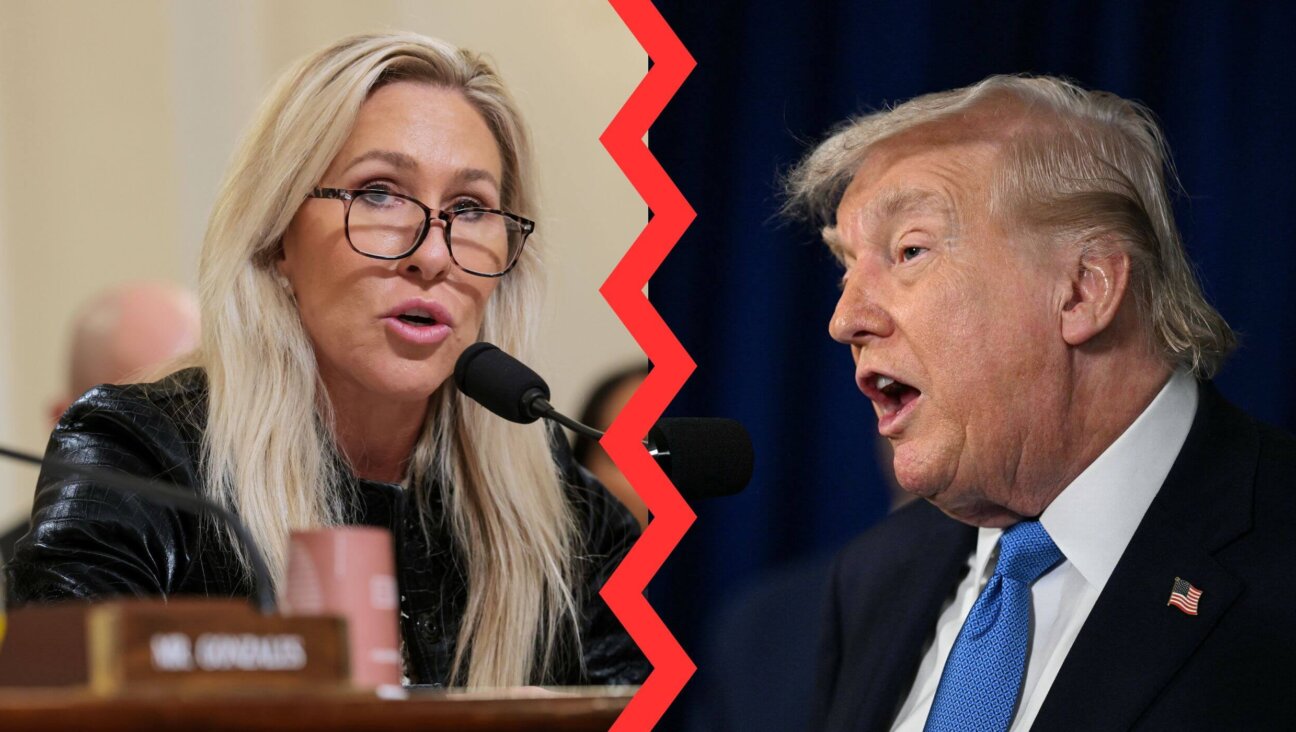Senate Introduces New Iran Sanctions Bill Ahead Of AIPAC Conference

Image by Getty Images
WASHINGTON (JTA) — A bipartisan slate of senators has introduced new sanctions targeting Iran for its missile testing and destabilizing actions days before AIPAC’s national conference.
The Countering Iran’s Destabilizing Activities Act of 2017 was introduced Thursday by Sen. Bob Corker, R-Tenn., the chairman of the Senate Foreign Relations Committee, and Sen. Robert Menendez, D-N.J. Ten senators, from both parties, co-sponsored the measure.
The act establishes new sanctions targeting Iran’s testing of ballistic missiles and its backing for terrorism, and also seeks to block the property of any entity involved in the sale of arms to or from Iran. It does not reintroduce sanctions lifted from Iran as part of the 2015 nuclear deal.
The text was not yet available.
The bill is timed ahead of the annual American Israel Public Affairs Committee conference taking place March 26-28 in Washington, D.C. AIPAC, after two years of tensions with Democrats over Iran policy, and emerging tensions with Republicans over the lobby’s endorsement of a two-state solution to the Israeli-Palestinian conflict, wants the conference to celebrate its reputation for bipartisanship.
Bipartisanship was a theme in the release announcing the sanctions.
“The spirit of bipartisanship of this important legislation underscores our strong belief that the United States must speak with one voice on the issue of holding Iran accountable for its continued nefarious actions across the world as the leading state sponsor of terrorism,” Menendez said.
Corker said the bill “demonstrates the strong bipartisan support in Congress for a comprehensive approach to holding Iran accountable by targeting all aspects of the regime’s destabilizing actions.”
Tensions arose between AIPAC and Democrats over the Obama administration’s deal with Iran trading sanctions relief for a nuclear rollback. AIPAC, along with the Israeli government and most Republicans, opposed the deal. A key stumbling block to bipartisan bills extending sanctions to Iran was Democratic fears that measures backed by Republicans were aimed at killing the deal, known as JCPOA.
The areas targeted for sanctions in the new bill are outside the ambit of the nuclear deal.
“This legislation was carefully crafted not to impede with the United States’ ability to live up to its commitments under the JCPOA, while still reaffirming and strengthening our resolve by imposing tough new sanctions to hold the Iranian regime accountable for threatening global and regional security,” Menendez said in the release.
A staffer for Sen. Ben Cardin, D-Md., the ranking Democrat on the foreign relations committee, said Cardin led Democrats in their efforts to make sure the bill did not undercut the Iran deal. Sen. Joe Donnelly, D-Ind., also played a leading role in making sure the bill was in compliance with the agreement.
Among measures favored by Republicans but removed by Democrats, the staffer said, were language that would have limited the ability of a president to waive the provisions of the bill for national security reasons; language that would have written oversight of the Iran deal’s sanctions relief into the new bill; language targeting the sale of commercial aircraft to Iran, which was liberalized as part of the nuclear deal, and limitations on dollar transactions allowed Iran under the nuclear deal.
Also introduced this week in time for the AIPAC conference were identical bipartisan bills in the Senate and the U.S. House of Representatives that would “encourage new areas of cooperation” between Israel and the United States in the economic sphere.
AIPAC officials have said the lobby stands out as a focal point for bipartisanship at a time of polarization under President Donald Trump.















